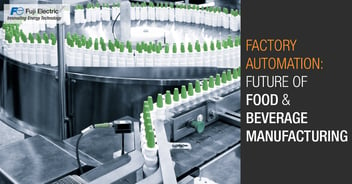Impact of Automation on the Textile Industry
The textile industry is one of the most energy-intensive industries in the world, with energy accounting for a significant portion of the industry's production costs. However, with the advent of automation and advances in technology, textile manufacturers now have the opportunity to reduce their energy consumption and save costs. The use of automated systems has greatly increased productivity and efficiency while reducing costs and improving the quality of the final product.
Manufacturers are looking for ways to reduce production costs without sacrificing product yield or quality in an increasingly competitive global business environment. Rising energy prices are increasing costs and reducing value added at the plant. The challenge of maintaining the output of a high-quality product despite lower production costs is overcome by successful, cost-effective investment in energy-efficiency technologies and practices. In the modern era, this is especially crucial because energy-efficient technologies frequently come with "additional" advantages, like raising business productivity or cutting down on water and/or material usage.
Automation revolutionizing the textile industry
The recent technological advancement and the introduction of automation have revolutionized the textile industry in several ways. Manufacturers have started leveraging automated machines and systems in the manufacturing process including various processes such as spinning, weaving, and dyeing. The introduction of computer-controlled machinery has enabled carrying out the production purpose in a faster way along with delivering efficiency, and product quality, and reducing production cost and energy consumption. Advanced automation systems can also enable textile manufacturers to achieve greater levels of customization, giving them the ability to produce smaller runs of specialized products quickly and cost-effectively. This is particularly important in an industry where fashion and trends are rapidly changing and companies are required to be more responsive to consumers' needs.
Enhanced Efficiency
Automation helps in delivering enhanced efficiency. Automated machines and systems can perform tasks such as spinning, weaving, dyeing, and printing with greater speed and precision than manual labor. This allows textile factories to produce more goods in less time, increasing their overall output and competitiveness in the market. Automated machines also help manufacturers meet demand changes by adjusting the production capacity.
Reduced energy consumption
Automation has not only improved productivity and efficiency in the textile industry, but it has also brought significant benefits in terms of energy efficiency. With the increasing pressure to reduce their carbon footprint and the rising energy cost, textile manufacturers are turning to automation to help them become more energy-efficient. One of the most significant ways in which automation enhances energy efficiency in the textile industry is through the use of advanced sensors and controls. Automated machines are equipped with sensors that can detect the machine's status and environment, such as temperature, humidity, and energy consumption. This data is then used to optimize the machine's performance, which can lead to significant energy savings.
Automated machines are designed to be more energy-efficient than manual labor. They are equipped with advanced technologies such as variable frequency drives, which can help to reduce energy consumption. Additionally, automated machines are often equipped with energy-saving features such as automatic shut-off, which can help to reduce energy consumption when the machine is not in use.
Better monitoring
Automation also allows textile manufacturers to better monitor and manage their energy consumption. Automated machines can provide real-time data on energy consumption, which can be used to identify areas where energy savings can be made. This data can then be used to make adjustments to the production process, such as reducing the number of machines in operation, or optimizing the production schedule to reduce energy consumption during peak hours.
The Frenic Ace from Fuji helps in reducing energy consumption and enhancing efficiency. This also helps in enhancing the life of the motor and machines, and the inverter also helps in detecting temperature, current, and voltage, enabling the operator to easily monitor the status of the motor and the overall system using the in-built sensors.
Product quality enhancement
Automation has also helped to improve product quality in the textile industry. Automated machines can be more precise and consistent than manual labor, which means that textile manufacturers can produce goods of a higher quality. Additionally, automated machines can be programmed to perform quality control checks, which can help to ensure that goods meet industry standards.
Enhanced work environment safety
Safety is another important benefit of automation in the textile industry. Automated machines can handle dangerous tasks such as handling heavy materials or operating machinery, which can help to reduce the risk of injury to workers. Additionally, automation can help to reduce the risk of fire and other hazards, which can be especially important in textile factories where flammable materials are often used.
Enhancing productivity in the textile industry using Frenic Ace
In conclusion, with advances in automation and technology, textile manufacturers now have the opportunity to reduce their energy consumption and costs, while also reducing their environmental impact. Frenic Ace inverters can help textile manufacturers to reduce their energy consumption, lower costs, and improve the quality of their products. Additionally, by implementing energy-saving measures such as Frenic Ace, textile manufacturers can meet their sustainability goals and reduce their environmental impact. As the textile industry continues to evolve and new technologies continue to emerge, the use of energy-efficient solutions such as Frenic Ace will become increasingly important for textile manufacturers looking to stay competitive and sustainable. Fuji Electric help in enhancing productivity and efficiency in the textile industry through its advanced automation solution.
 China
China Europe
Europe France
France Hong Kong
Hong Kong Indonesia
Indonesia Japan
Japan Singapore
Singapore Thailand
Thailand USA
USA

